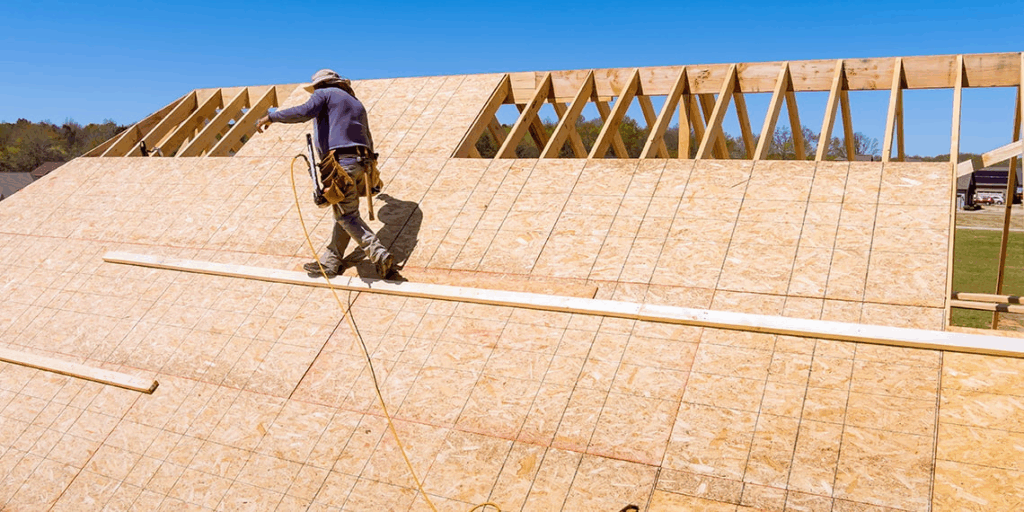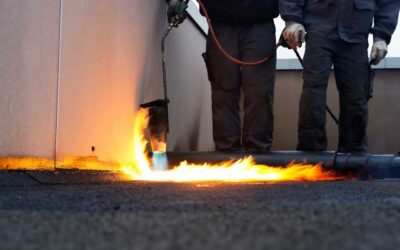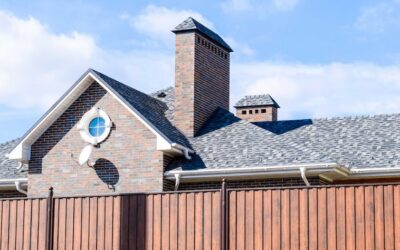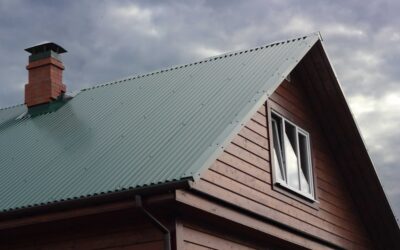Plywood vs. OSB: What Is Better for Your Roof?

When it comes to building or replacing a roof, one of the most crucial decisions you’ll need to make is choosing the right type of roof sheathing. The two most commonly used materials for this purpose are plywood and oriented strand board (OSB). Both materials serve the same primary function—to provide a stable and durable base for roofing materials like shingles, metal panels, or tiles—but they have distinct characteristics that can impact performance, longevity, and cost.
In this guide, we’ll take an in-depth look at plywood and OSB, comparing their advantages, disadvantages, costs, and overall effectiveness as roofing materials. By the end of this article, you’ll have the information you need to make the best decision for your roofing project.
What Is Roof Sheathing?
Roof sheathing, also known as decking, is the layer of material that sits between the roof’s structural framing (rafters or trusses) and the outer roofing material. Its primary functions include:
- Providing a solid surface for roofing materials to be installed
- Distributing weight evenly across the roof
- Enhancing the roof’s structural integrity
- Protecting against moisture and other environmental factors
Since the sheathing plays such a critical role in the roof’s performance, selecting the right material is essential.
Plywood: An Overview
What Is Plywood?
Plywood is a wood panel made from thin layers (or “plies”) of wood veneer glued together. The grain of each layer is positioned at right angles to the adjacent layer, which enhances strength, stability, and resistance to warping. The most common type of plywood used for roofing is CDX plywood, which consists of layers of softwood bonded with a waterproof adhesive.
Advantages of Plywood for Roofing
- Strength and Durability
- Plywood is known for its high strength-to-weight ratio, making it a reliable material for withstanding heavy loads, including snow and wind pressure.
- Resistance to Moisture
- Although plywood absorbs water, it dries out relatively quickly and maintains its structural integrity over time.
- Less Expansion and Contraction
- Plywood is less prone to swelling or shrinking due to temperature and humidity changes compared to OSB.
- Superior Fastener Holding Power
- Screws and nails grip better in plywood than in OSB, reducing the risk of fasteners loosening over time.
Disadvantages of Plywood for Roofing
- Higher Cost
- Plywood is typically more expensive than OSB, which can increase the overall cost of a roofing project.
- Limited Sheet Size
- Plywood sheets usually come in standard 4×8-foot sizes, meaning more seams and potential weak points in the roof sheathing.
- More Susceptible to Delamination
- When exposed to prolonged moisture, plywood can delaminate as the adhesive between layers breaks down.

OSB: An Overview
What Is OSB?
Oriented strand board (OSB) is an engineered wood product made by compressing layers of wood strands with adhesives. The strands are oriented in specific directions to enhance strength and stability. OSB is widely used in modern construction, including roofing, flooring, and wall sheathing.
Advantages of OSB for Roofing
- Cost-Effectiveness
- OSB is generally 10-15% cheaper than plywood, making it a more budget-friendly option for roofing projects.
- Larger Panel Sizes
- OSB is available in larger sheets (e.g., 4×9 or 4×10 feet), reducing the number of seams and creating a more uniform surface.
- High Strength and Durability
- OSB has excellent load-bearing capacity, making it a strong and reliable option for roof sheathing.
- Consistent Manufacturing
- OSB is manufactured using precise engineering techniques, ensuring uniform thickness and strength throughout each panel.
Disadvantages of OSB for Roofing
- Higher Water Absorption
- OSB tends to absorb and retain water more than plywood, which can lead to swelling and deterioration over time.
- Longer Drying Time
- Once OSB absorbs moisture, it takes longer to dry compared to plywood, increasing the risk of mold and rot.
- Weaker Fastener Holding Strength
- Nails and screws don’t grip OSB as effectively as they do with plywood, which can result in weaker connections over time.

Plywood vs. OSB: Side-by-Side Comparison
| Feature | Plywood | OSB |
|---|---|---|
| Cost | Higher | Lower |
| Strength | Strong | Very strong |
| Water Resistance | Better | Weaker (swells when wet) |
| Weight | Lighter | Heavier |
| Fastener Holding | Stronger | Weaker |
| Environmental Impact | More trees used | More eco-friendly (uses smaller, fast-growing trees) |
| Availability | Widely available | Widely available |
| Durability | Long-lasting | Long-lasting but vulnerable to moisture |
Best Applications: When to Use Plywood vs. OSB
- Use Plywood If:
- You live in a high-moisture or humid climate.
- You want superior water resistance and fastener holding power.
- Your budget allows for a slightly higher material cost.
- Use OSB If:
- You need a cost-effective solution.
- You prefer larger sheets for fewer seams.
- You live in a dry climate with minimal exposure to moisture.
The Verdict: Which Is Better for Your Roof?
Both plywood and OSB have their advantages and drawbacks, and the best choice depends on your specific needs, budget, and climate conditions.
- If water resistance and longevity are your top priorities, plywood is the better option because it resists moisture better and dries faster.
- If cost and availability are more important to you, OSB is a great choice because it offers strong performance at a lower price point.
Ultimately, consulting with a professional roofing contractor can help you determine the best material for your home’s roof.
Conclusion
Plywood and OSB are both excellent options for roof sheathing, but they serve different needs. If you’re looking for durability, moisture resistance, and better fastener grip, plywood is the superior choice. However, if you need an affordable and structurally sound option, OSB is a practical alternative.
At S&K Construction and Remodeling LLC, we specialize in providing expert roofing services using high-quality materials tailored to your specific needs. Contact us today to discuss your roofing project, and let us help you choose the best sheathing for your roof.
 (440) 307-2060
(440) 307-2060




